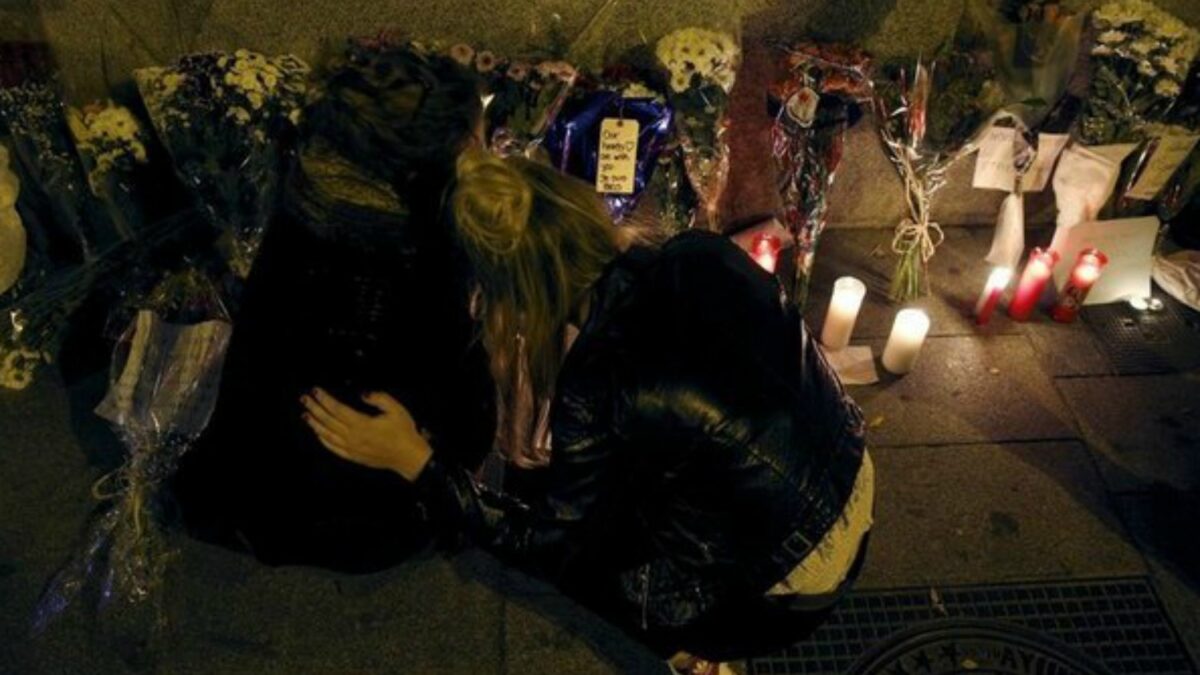Voltaire’s shadow
A sustained, penetrating fear, a terror that becomes common; it goes with us to a match, a concert, to the bistro. The terrorist attacks of November 13 in Paris have turned fear into anxiety, collective anguish, because terror stopped having a clear, definite target to become a feeling of total and widespread insecurity, with apprehension and continued shock without an identifiable place or reason.

A sustained, penetrating fear, a terror that becomes common; it goes with us to a match, a concert, to the bistro. The terrorist attacks of November 13 in Paris have turned fear into anxiety, collective anguish, because terror stopped having a clear, definite target to become a feeling of total and widespread insecurity, with apprehension and continued shock without an identifiable place or reason.
A sustained, penetrating fear, a terror that becomes common; it goes with us to a match, a concert, to the bistro. The terrorist attacks of November 13 in Paris have turned fear into anxiety, collective anguish, because terror stopped having a clear, definite target to become a feeling of total and widespread insecurity, with apprehension and continued shock without an identifiable place or reason.
Danger is now anywhere. It does not need of great urban icons or renowned cultural symbols. It does not matter in what London or Paris park it is, in what cafeteria of Vienna or Madrid.
There is no need to travel to Venezuela and walk the streets of Caracas to set off the alarms on crime, nor do you have to stroll in Ciudad Juárez, Mexico, to feel the smell of death close by. Just walk through any western city and butchery will reach us. This is the feeling of many people, mothers, workers or tourists in Spain, Italy or Germany. Except it is Phobos (fear) accompanied by the Erinyes (personifications of vengeance) because fear is joined by anger, the rage produced by injustice. Hence, compared to the call for tolerance set by the emotional tone of the manifestations of solidarity following the criminal attack on the satirical paper Charlie Hebdo, a good part of the public opinion in the days after the Paris massacre has centered on the war, on the inevitable acceptance of a fight, on the necessity of defending tolerance with a zero tolerance for Jihadism.
The attacks, explosions and shootings claimed by the Islamic State, occurred in common and diverse places like the restaurants Le Carrillon, Le Petit Cambodge, the terrace of Bonne Biére, the Rue de Charonne or the surroundings of the Stade de France. The lack of symbolic prominence of these chosen places is not entirely true. The massacre took place in central districts full of people in search for fun, music, entertainment and freedom. For the majority of the 129 killed and 352 wounded to have occurred in the Bataclan hall, on Boulevard Voltaire, refers to the clash of cultures. Named after a satirical operetta by Jacques Offenbach, Ba -ta- clan, the theater is identified with a long history of entertainment, frivolity and hedonism of the French popular culture. It is precisely the expression of a facet of western life, which according to noted thinkers of Jihadist-Salafism such as Sayyid Qutb, must be eradicated to cleanse the world of the corruption and impureness that stops the realm of the Sharia established by Allah. And it is not mere chance that the libertine salon is located on the boulevard named after the great defender of tolerance in the Age of Enlightenment, Voltaire, the Voltaire, the philosopher and critic of power, irrationality, religious dogma and intolerance.
The deadly terrorist attach of N13 in Paris have turned into images of a collective post-traumatic stress disorder of some sort, into intrusive distressing representations of the vulnerability to which we are subjected, into vicarial experiences of insecurity and helplessness. Unlike post-traumatic stress disorder, however, characterized by dissociative reactions and discomfort of the unavoidable recurring memories, the emotional impact of the events and the general rejection of terrorist excesses seem to begin a period of transformation and consciousness of Western values. They will undoubtedly be delicate and difficult times for our notions of freedom, tolerance and peace, but conducive to delve into the understanding of the intricate mechanisms involved in the shadow of the psyche and that repeatedly result in resentment and human destructiveness.
